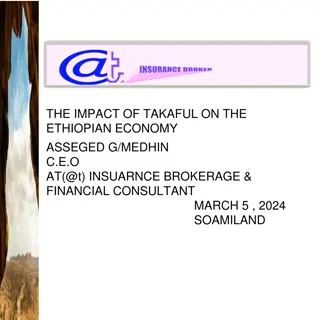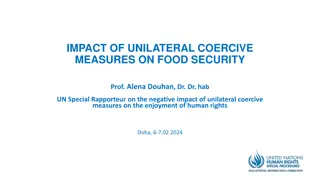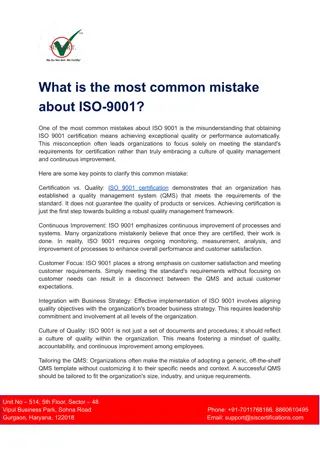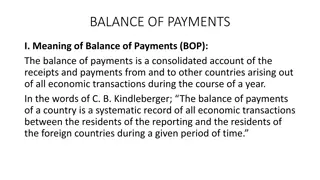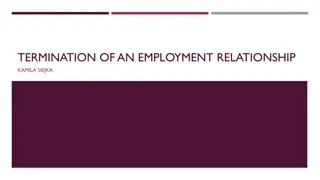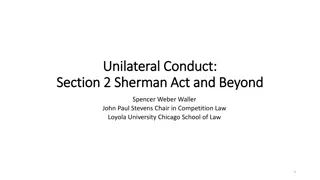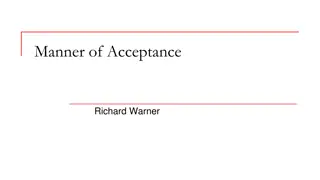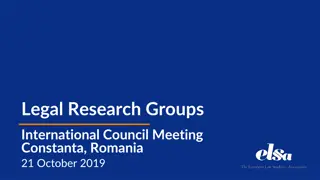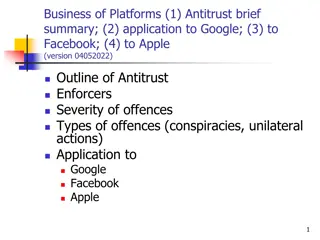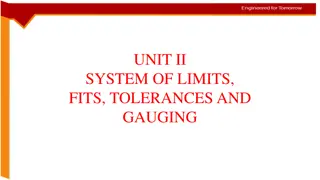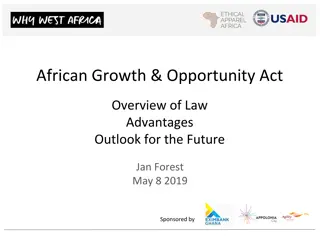Unilateral Mistake
In the case of Elinsore Union v. Kastorff, a contractor submitted a bid with an error in calculation, leading to a contractual dispute. The issue of who should bear the loss in such unilateral mistake scenarios is explored through various legal perspectives and hypothetical variations. The analysis delves into considerations of enforcement, fairness, and possible solutions when mistakes occur in contractual agreements.
Download Presentation

Please find below an Image/Link to download the presentation.
The content on the website is provided AS IS for your information and personal use only. It may not be sold, licensed, or shared on other websites without obtaining consent from the author.If you encounter any issues during the download, it is possible that the publisher has removed the file from their server.
You are allowed to download the files provided on this website for personal or commercial use, subject to the condition that they are used lawfully. All files are the property of their respective owners.
The content on the website is provided AS IS for your information and personal use only. It may not be sold, licensed, or shared on other websites without obtaining consent from the author.
E N D
Presentation Transcript
Unilateral Mistake Richard Warner
Elinsore Union v. Kastorff What was the mistake here? The contractor added up his figures wrong; he submitted a bid just under $90,000 when he meant to bid just under $99,500. The contractor discovered his mistake the next morning and tried to cancel, but the school dist. insisted that it was too late, that the contract has already been made. The court held that the contractor could rescind the contract.
Who Ought to Bear the Loss? Enforce Not enforce Contractor in underpaid/losing contract Contractor not in underpaid/losing contract Is the School Board no worse off than if mistake had not been made? For a clear Yes make two more assumptions.
Variation 1 First assumption: The school district still has no way of realizing the mistake, but this time the contractor discovers the mistake prior to beginning work. Second assumption: The school district can still accept the next lowest bid--say that was $97,000. This is not as good as the $90,000 contract, but they are no worse off than if the mistake had not been made. Then the $97,000 bid would have been the lowest. We can take this as an example of a case in which it would be unconscionable to enforce the contract.
Variation 2 As in Variation 1, the contractor s intended bid is $99,500 but he submits $90,000 by mistake. Suppose the school district had no way of discovering the mistake, and the contractor did not notice it either. The contractor begins work, spends $50,000, and then notices the mistake. Can the contractor get out of the contract? (a) Yes (b) No
Who Ought to Bear the Loss? Enforce Not enforce Contractor in underpaid/losing contract Contractor not in underpaid/losing contract The School Board is NOT no worse off than if mistake had not been made. We can take this as a clear case in which it is not unconscionable to enforce the contract.
Variation 3 The district has to put out a new round of bids. This costs them $500 in administrative costs, and the new lowest bid is $98,000, not $97,000. Then the mistake has caused $1500 in damage. Should the bidder be liable for this much? Many case reach such a result.
272 Relief Including Restitution (2) In any case governed by the rules stated in this Chapter, if those rules together with the rules stated in Chapter 16 will not avoid injustice, the court may grant relief on such terms as justice requires including protection of the parties' reliance interests.
Variation 2 Suppose the contractor was careless in submitting his bid; the bid is for $10,000 when all the other bids are between $90,000 - $100,000. Imagine he types 10,000 instead of 90,000 and does not notice the error. The school district does not say anything, it just accepts the bid. Is the contractor excused on the basis of mistake? (a) Yes (b) No
Information and Control The school board can easily avoid the mistake.
Mistakes Of Transcription And Misunderstanding We have three more categories of mistakes to consider: (1) Cases where the agreement was written down incorrectly; (2) cases where one party was only joking; (3) cases like Raffles v. Wichelhaus where the parties use the same word but have different things in mind.
Travelers Insurance Co. v. Bailey This is a case where the agreement was written down incorrectly. What happened? The parties agreed on an insurance policy that would pay $500 a year to Bailey when he reached 65. But when they filled out the form, they wrote down that the payments would be $500 a month ($6000 a year). Who is asking for a remedy? The insurance company. What are they asking for? For the contract to be reformed.
Reformation Technically, this is an off the contract suit; the insurance company is not suing to enforce the contract but to have the contract rewritten, the way it should have been in the first place. The suit in reformation is an equitable cause of action; it doesn't charge anyone with breaching a contract. It just asks for the transcription error to be corrected.



